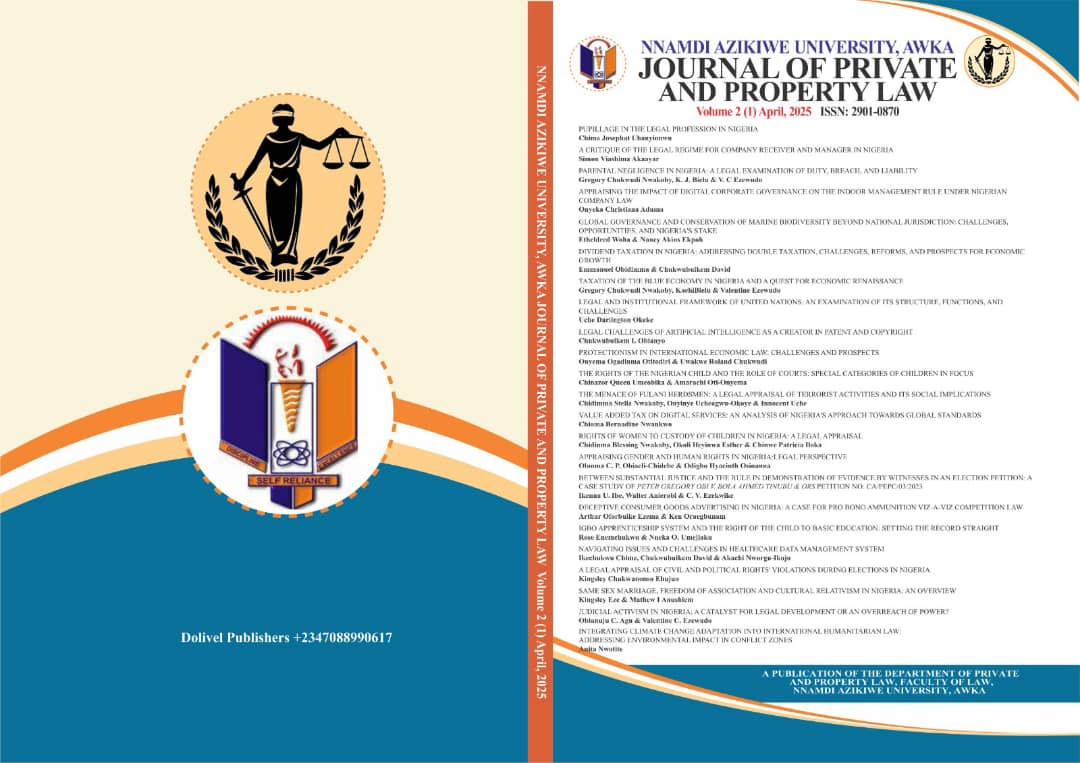SAME SEX MARRIAGE, FREEDOM OF ASSOCIATION AND CULTURAL RELATIVISM IN NIGERIA: AN OVERVIEW
Keywords:
Same-Sex Marriage, Freedom of Association, LGBTQ, Cultural RelativismAbstract
Same-sex marriage has emerged as a contentious issue globally, with significant legal, cultural, and
social implications. This study seeks to examine the intersection between same-sex marriage,
freedom of association, and cultural relativism in Nigeria, focusing on the challenges and prospects
of reconciling global human rights standards with deeply rooted cultural and religious values. The
work highlights the dual dynamics of the discourse, where the assertion of freedom of association as
a fundamental right collides with strong societal opposition rooted in cultural relativism and
traditional beliefs. The research seeks to underscore the role of Nigeria's legal framework,
particularly the Same-Sex Marriage (Prohibition) Act 2014, in shaping the discourse and the broader
implications for human rights and social cohesion. While the study acknowledges the significance of
cultural relativism in preserving societal identity, it will critique the legal and social barriers that
marginalize LGBTQ individuals and restrict their fundamental freedoms. The doctrinal methodology
is employed by analyzing statutes, case law, and scholarly articles to evaluate the current legal
framework and its alignment with international human rights obligations. The findings reveal that
the legal prohibition of same-sex marriage exacerbates discrimination and infringes on the rights to
freedom of association and equality. The work recommends a nuanced approach that balances
cultural sensitivities with the universality of human rights. It calls for public dialogue, legal reforms,
and enhanced awareness campaigns to foster inclusivity while respecting cultural contexts. The study
concludes that addressing the complexities of same-sex marriage in Nigeria requires an adaptive
legal framework that harmonizes cultural relativism with fundamental freedoms, ensuring social
harmony and the protection of human dignity.

